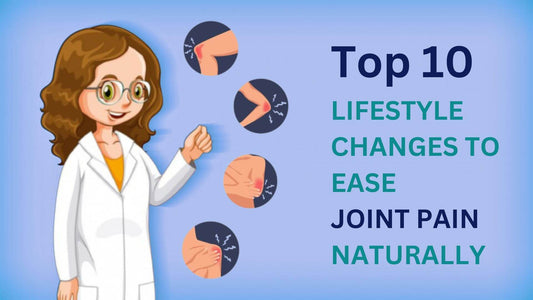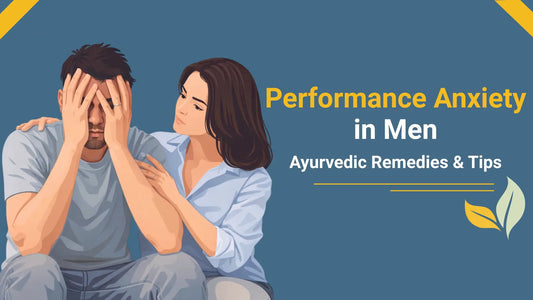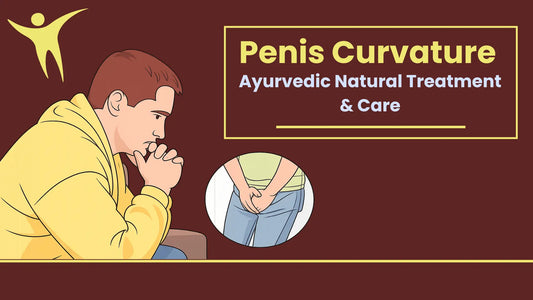
Top 10 Lifestyle Changes to Ease Joint Pain Naturally
For most of us, joint pain can be very painful and unbearable and can interfere with our regular activities. Whether joint pain happens to be mild or severe, none of us would be in the mood for happiness and relaxation.
It becomes difficult for us to continue with the joint pain without the support of medication, massage, proper diet and light exercises.
Without attending any treatment, we would be destined to suffer a lot with swollen, inflammatory, stiff and painful joints.
To approach appropriate treatment, we must check the factors causing joint pain.
What Are the Major Causes of Joint Pain?
Although most of us have joint discomfort occasionally, there may be different underlying causes of knee pain in young adults.
Most of us are not aware of the given causes that may trigger joint pain:
Any Form of Physical and Stress
The problem of sore and painful joints may be experienced by the patient during the phase or post-viral fever. Tension and stress in muscles will also continue to bother the patient because the defense mechanism fails to control the growing impact of the virus.
Many of us develop gout in the area of joints during jaundice and hepatitis because of the rise in uric acid in our bodies. Any form of illness which is known as typhoid tends to cause weakness in joints. After typhoid, the weakness may last for a long time.
Physical Injury
Cartilage in the joints becomes affected in a way if the injury arising from any condition is severe. The condition becomes worse when the bones crackle with each other and the person finds difficulty in moving that affected joint area.
Joint Burning and Age-Related Arthritis Pain
Many of us tend to suffer from inflammatory conditions in joints as we grow older in age. Quality of lubrication dips down in the joints due to wear and tear of cartilage. That’s when we find ourselves struggling with climbing up or down the stairs, running or walking.
Lifestyle Disorder
Depending on processed food items often brings problems to our bones by increasing the uric acid. Uric acid weakens the cartilage of the bones and causes us to suffer from stiffness and immobility. Neglecting consumption of Vitamin D, Calcium and other essential minerals like zinc and magnesium can do worse to bone health by causing fracture or dislocation.
Joint Overuse
Research has also shown that repetitive motions or postures involving particular body regions can cause joint pain and stiffness.
10 Lifestyle Changes to Ease Joint Pain Naturally
Depending on the level of pain, stiffness and inflammation in joints, treatment involving medication, exercise, cold therapy and even surgery might be required.
The doctor’s advice and prescribed medications would possibly subside the inflammation, pain and stiffness.
Let’s check with the 10 simple tips for managing joint pain as regularly advised by an orthopedic doctor.
Exercise Regularly And Move Your Body (Do Stretching)

Engaging in some exercises like stretching and folding of joints, swimming or any type of movement let’s say walking can improve the blood circulation in the aching joints and stimulate lubrication and flexibility.
Eat a Healthy Diet

It is necessary to improve the quality of diet to help fight the stiffness, immobility and pain in joints. Make sure to add more calcium, vitamins, proteins and essential minerals that make bone stronger, enhance synovial fluid and prevent cartilage loss. Eating soybeans, prawns, crabs, lobsters, green leafy veggies and whole grains can control the spread of the inflammatory condition and boost lubrication in joints.
Use Heat and Ice

You can simply use a rubber bag filled with hot water or any clean and old cloth and add a few grains of rice or barley and tie it hard and heat it inside the microwave and apply it on the painful joints. Or else, you can use the cloth and put crystals of ice and tie the cloth.
Such applications will stimulate the movement of blood and awaken the required minerals in the affected joints. It will reduce stiffness and inflammatory conditions prevailing in joints.
Get a Massage

Get a massage from the best Panchakarma clinic for your joint pain or alternatively you can use Ortho Veda Oil, which is a herbal home remedy for joint pain and arthritis. You can apply it on the painful area to reduce the level of Vata dosha, swelling and stiffness present in the joints. Massaging the painful area with this oil will help remove blockages in the joints and throughout the body, promote blood circulation, help rebuild tissues, and increase flexibility.
Get Quality Sleep

Adjust yourself with new sleeping habits or postures. The same sleeping postures repeatedly done might enhance the pain and stiffness in joints. Falling asleep and deep sleep of 8 hours will make your muscle tension and joint pain recover faster. Try to read any interesting book while lying on the bed if falling asleep is too hard for you during periods of joint pain. You will surely fall asleep!
Manage Weight

Obesity or excessive growth of fats in the body can limit your body's movements. It can increase the level of cholesterol levels and toxicity and block the flow of blood in the area of joints and raise stiffness. You must avoid sedentary habits of watching TV for long hours or keep yourself physically active even during your long hours of a desk job. It will help in stimulating the loss of unhealthy fats and increasing the flow of oxygen-rich blood into joints.
Avoid Smoking and Excessive Alcohol Consumption

Nicotine abuse and alcohol drinking cause depletion of nutrients in the blood and increase the rate of toxicity. Addiction to such substances can reduce the strength of bones and their connected tissues. Rather, choose fruit juices made from apples, oranges and pomegranates to boost the longevity of healthy bones and cartilage.
And if you are slowly getting addicted to this habit, to get rid of it, there are many things you can do, like- get the best anti-addiction medication, go to rehab, or try nicotine replacement therapy.
Wear Supportive Shoes

You can wear shock-absorbing shoes to lower the problems of stiffness and immobility in your stiff joints. It reduces the impact of your stiff joints hitting the ground and makes your movements easier and more comfortable. It will prevent you from falling down and suffering from any injury. You can also order cushioned shoes or different types of orthopedic as per the comfort that your feet require including the length and width.
Use Assistive Devices

Assistive devices, such as canes, walkers, and crutches, can help to reduce stress on your joints
Using canes and crutches during walking will reduce the burden of your weight from your ailing knee joints and bring stability to movement. Such devices will improve the gravity and quality of standing and control the risks of falling down. Walkers will help in balancing your entire body in a better way by reducing the pain and stimulating comfortable walking and standing.
Get Regular Checkups and Consult With a Doctor

Consulting an orthopedic surgeon will help in getting a clear idea of the level of joint pain. With the help of X-rays and Ultrasound techniques, the doctor will be able to locate the source of pain or swollen area in the joints and the related causes. Depending on the condition of the joints, the doctor might prescribe medication, exercise or adjust worn-out cartilage or painful joints with surgical techniques.
Conclusion
It becomes difficult for us to continue with the joint pain without the support of medication, massage, proper diet and light exercises. Research has also shown that repetitive motions or postures involving particular body regions can cause joint pain and stiffness. Depending on the level of pain, stiffness and inflammation in joints, treatment involving medication, exercise, cold therapy and even surgery might be required. It is necessary to improve the quality of diet to help fight the stiffness, immobility and pain in joints. You must have expert support for getting a massage on the ailing, stiffness and painful joints.

Dr. Pooja Verma
Dr. Pooja Verma is a sincere General Ayurvedic Physician who holds a BAMS degree with an interest in healing people holistically. She makes tailor-made treatment plans for a patient based on the blend of Ayurveda and modern science. She specializes in the treatment of diabetes, joint pains, arthritis, piles, and age-related mobility issues.



